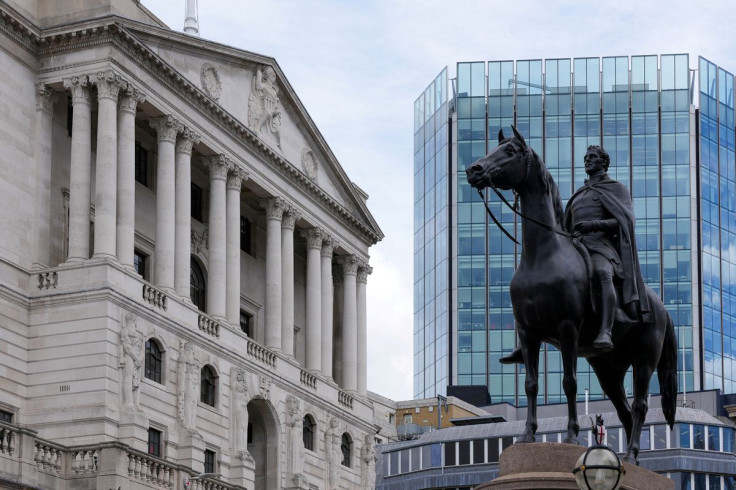Bank of England and HM Treasury considers 'digital pound'
Declining cash usage fuels current Bank of England and HM Treasury consultation on a new 'digital pound' before the end of this decade.

Only in 2017 did cash stop being the primary mode of transaction in the UK. Now, shockingly, many people in the nation regard the use of cash as distinctly quaint.
In recent years, a wholesale transition to a predominantly cashless economy has taken place. In 2021 cash accounted for only 15 per cent of all payments made. And, significantly, 23.1 million consumers used cash only once a month or not at all - up from 13.7 million in 2020.
Meanwhile, contactless payments have rapidly progressed from burgeoning technology to an unremarkable daily occurrence. New data from Barclays revealed that in 2022, a record 91.2 per cent of all eligible transactions were made using contactless methods, and for the second year running, the most significant increase in contactless usage was amongst the over 65s.
As cash seems certain to become ever more obsolete, the Bank of England and HM Treasury are currently consulting on a potential 'digital pound' which could be introduced in the second half of the decade.
What would a 'digital pound' look like?
Despite immediately being dubbed 'Britcoin', the proposed central bank digital currency (CBDC) would not operate as a cryptocurrency but would replicate the role of cash - in digital form.
Although the Bank of England would both issue the digital pound and provide the central infrastructure, the currency would be accessible via digital 'wallets' provided by private companies.
The proposed system would operate on a 'pass-through' basis, with private sector firms acting as an interface between the Bank and users. Unlike commercially issued 'private' money, digital pounds would not constitute a claim on the provider but would be held on the Bank of England's 'core ledger'.
Just as physical cash garners no interest, neither would digital pounds. Their value would always equate to that of physical pounds.
What's the point?
Sir Jon Cunliffe, Deputy Governor of Financial Stability for the Bank of England, speaking at UK Finance last month, said: "We cannot ignore the fact that the safest form of money, 'public' money, that is to say, money issued by the state for general use, will become increasingly less useful and usable and of shrinking relevance to a large part of the population.
"Nor can we ignore the likelihood that we will see the emergence of new forms of money, offering new possibilities and issued by new as well as established players."
He further stated, "The provision of Bank of England money to the public and reserve money to commercial banks institutions anchors confidence, uniformity and interchangeability of money in the UK.
"Our assessment is that future developments in payments and money will make it likely that, alongside regulation, we will in the future need a digital pound, issued by the Bank of England to perform this anchor function."
The deputy governor also outlined the possibility for "programmable money", whereby "smart contracts" could automate transactions accordant to predetermined criteria.
Scepticism reigns
Despite Cunliffe telling the HM Treasury Select Committee that the introduction of a CBDC was "more likely than not", many remain dubious of the plans. In January 2022, the House of Lords Economic Affairs Committee released a report entitled 'Central bank digital currencies: a solution in search of a problem?'
The report concluded that "we have yet to hear a convincing case for why the UK needs a retail CBDC" and underscored the "significant risks" of such a move.
Possible risks included "state surveillance of people's spending choices, financial instability as people convert bank deposits to CBDC during periods of economic stress, an increase in central bank power without sufficient scrutiny, and the creation of a centralised point of failure that would be a target for a hostile nation-state or criminal actors".
Endeavouring to mitigate threats to financial stability, limits to the amount an individual or business may hold, at least initially, have been proposed - currently stipulated to be between £10,000 and £20,000 per individual.
Unease regarding potential infringements on consumer privacy fuels much of the scepticism. In April 2021, the European Central Bank, currently consulting on a 'digital euro', released a report that found privacy to be the public's primary concern - over security - as 2 out of 5 rated it their number one concern.
In his February speech to UK Finance, Cunliffe, hoping to assuage these fears, said: "We intend that the digital pound would have the same (or stronger) privacy protections as bank accounts, debit cards or cheques."
"Individuals' personal details and transaction records would be known only to their private sector wallet provider in the same way they are for the bank account providers today... but individuals' details and records would not be known by the Government or the Bank of England."
It's not just the UK
Central bank angst regarding the possibility of so-called 'walled gardens' - dominant tech firms developing monopolies over the payments sector - and their own subsequent impotence as issuers solely of the increasingly-irrelevant cash, has meant a growing number of central banks are considering the implementation of CBDCs.
The latest figures (December 2022) from Atlantic Council's Central Bank Digital Currency Tracker have 114 countries - representing 95 per cent of global GDP - currently exploring the possibility, and 11 have already fully launched CBDCs.
© Copyright IBTimes 2025. All rights reserved.





















